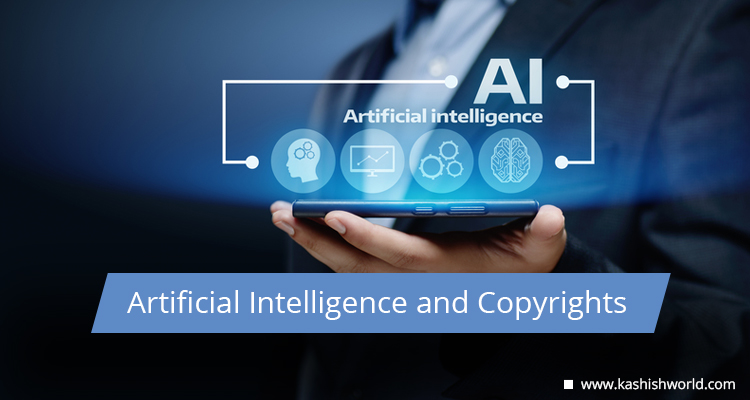
Artificial Intelligence (AI) has been continuously gaining widespread and intense momentum in today’s ever-evolving tech-savvy world. With the incorporation of complicated technologies, the AI systems are capable of coming up with astounding inventions and innovations over a matter of time. AI systems can easily create complex works like art, poetry, to name a few, and perform calculations. However, now the question is whether these works are also capable of getting Intellectual Property (IP) Protection under the Intellectual Property Law, just like any other invention or work produced by human beings or not.
UNDERSTANDING THE TERM ARTIFICIAL INTELLIGENCE
In simple words, Artificial Intelligence or AI refers to the ability of a computer system to make the decisions and do the required processing on its own. It is also defined as the task of processing or acting on information such that the results are synonymous with how an intelligent human being would have responded to in the same situation. After the introduction of AI technology, the question that now arises is whether the creation or output rendered by an AI system is a result of the system’s intelligence or its creator. AI-enabled systems have now also gathered the attention of legal Intellectual Property (IP) authorities when computer work is at times denied copyright by the Registrar of Copyrights because of indeterminate legal status.
LINK BETWEEN AI AND COPYRIGHTS
A copyright is an exclusive legal right or an Intellectual Property Right (IPR) granted to the owner or the creator of original work for his unique creation. The subject-matter of copyright includes two things – the work should be original and in tangible form. Generally, copyrights are granted for literary and artistic works. As the creation of literary and artistic works is a contemporary area of the applications of AI systems, the concept of copyrights in the field of Artificial Intelligence is therefore relevant.
COPYRIGHT PROTECTION AND AI
Even after several judgments, the debate regarding the ambiguity of stance continues. The National Commission on New Technological Uses of Copyrighted Works has mentioned in its report that the capability of AI technology or systems to create practical work is theoretical and not practical. On the other hand, the Office of Technology Assessment has a different viewpoint and suggested that AI works can be treated as legitimate co-authors or co-creators of copyrighted works.
Even if the countries agree to grant copyrights to AI works, then there will be another point of discussion about who shall be the copyright owner. As of now, the current law requires a legal person to be the IP right holder. Another loophole is that, if AI systems are sold or purchased, then copyrights shall be granted to the buyer or shall remain with the creator. Many countries, including New Zealand and England, favor the creator in such circumstances. The critical issue in the present legal system is who would bear the criminal liability of AI works. As per the current law, criminal liability falls upon the creator or programmer. Hence the law requires some immediate consideration for removing the loopholes.
REMEDIES AND SUGGESTIONS
- UNIFORM RECOGNITION – As AI systems have achieved recognition only in a few selected nations, including the US, England, and New Zealand, all other countries must come forward as well and take a positive initiative towards the recognition of such systems.
- NO AMBIGUITY – With the advent of AI-enabled systems, the confusion regarding Copyright Laws must be removed by the legal authorities and departments as with widespread solutions rendered by AI technology, the protection of such works is now a critical question for every nation.
- NEW LAW OR ACT – In the present era, AI systems are performing human-like functionality in almost every sphere of life. Therefore, the nations must come up with a new act or law for AI works, which shall further provide adequate remedies for both civil and criminal offenses and remove the unnecessary liability of the creator.
BOTTOM LINE
The current IP Law related to Artificial Intelligence is problematic since the recognition of work generated by AI-enabled systems in under ambiguity. Therefore, some well-defined and precise legislative rules and regulations are necessary to deal with the issue. With the widespread implementation and usage of AI techniques in our day-to-day lives, there is a need to implement proper guidelines regarding the registration and protection of AI works as IP urgently in every nation.

